Campus Watch
Watch: IIT Mandi Researchers Use ‘Pollutant Diesel Emissions’ For Water Treatment
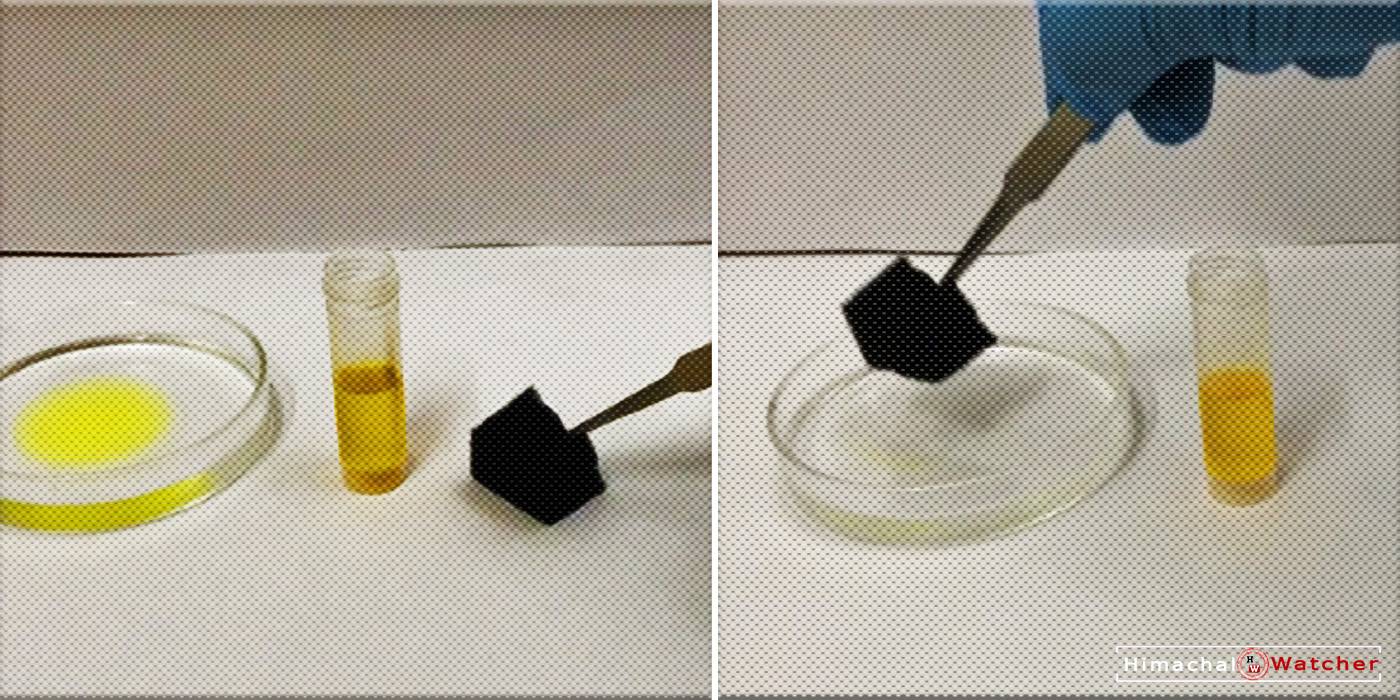
Mandi- Researchers at Indian Institute of Technology Mandi have used the soot emitted by diesel engines to mop up oil and other organic pollutants from water. Their work has been recently published in the journal – Environmental Science and Pollution Research.
Although diesel engines are known to be superior to other internal combustion engines in terms of lower fuel consumption and better energy release efficiencies, they are associated with significant amounts of particulate emissions.
The particulates largely comprise soot, which is formed in the fuel rich regions of the burning diesel jets. Increasing environmental concerns and stringent emission standards require the development of both conventional and unconventional means for reducing soot.
Studies in this area have focused on improving the engine design and incorporating special filters and treatment units at the exhaust end of the vehicle.
Dr. Rahul Vaish, Associate Professor, School of Engineering at IIT Mandi and his research students Vishvendra Pratap Singh and Moolchand Sharma have looked at this problem from a different perspective.
They rationalized that while it is impossible to bring down soot emissions to zero, it is possible to find a use for the soot produced.
Carbon species such as carbon nanotubes, graphene, and candle soot have shown their potential in many fields,
says
so why not automobile soot?
It is known that carbon species can absorb various organic pollutants in water. Carbon nanotubes, filter paper, mesh films, and graphene have been used for removing oil from water. Given that the typical carbon content of soot is between 90 and 98%, the team explored the possibility of using this pollutant as an adsorbent of oil and organic contaminants in water.
There is a rapid increase in oil and chemical leakages from oil tankers or ships and industrial accidents with expansion in oil production and transportation in the last few decades,
the authors write in their recently published paper, justifying the need for new materials to mop up oil and prevent catastrophic environmental outcomes.
In an earlier study, Dr. Vaish used candle soot to successfully remove two cationic dyes, rhodamine B and methylene blue from water, thereby showing the possibility of organic from water thereby showing the possibility of organic chemical removal by soot. Extending this earlier work, the research team incorporated diesel exhaust soot into polymer sponges to study their capability to adsorb oil and other organic materials from water. This hydrophobic sponge showed high absorption capacity for various oils, without the need for complex pretreatments.
The researchers found that the highest oil absorption capacity was 39 g/g for engine oil. An interesting observation was that the sponges were recyclable and retained 95% efficiency even after 10 cycles.
The diesel soot impregnated sponge could also absorb pollutants like methylene blue, ciprofloxacin, and detergent from the water. This has practical implications.
Apart from oil spills, organic pollutants such as traces of dyes and detergent coming from industries and households are a major contributor to water pollution,
says Dr. Vaish.
The soot impregnated sponge can help in developing cost-effective remediation processes for common domestic and industrial pollutants. Such a development would additionally serve to repurpose automobile waste.
Campus Watch
Nauni Varsity Scholar Naincy Bags Scholarship to Pursue PhD in France
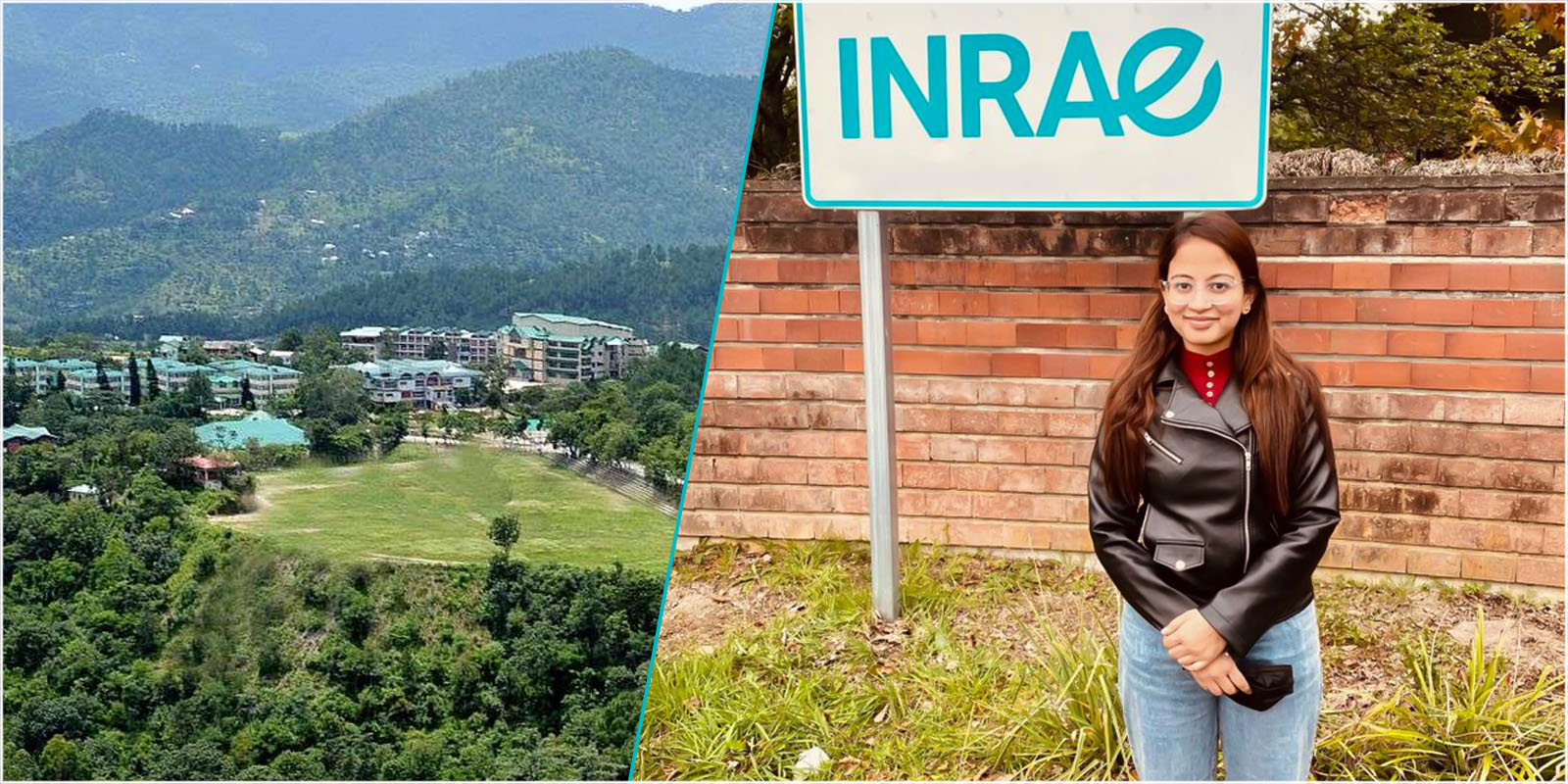
Solan: Naincy Sagar, an alumna of Dr. YS Parmar University of Horticulture and Forestry, Nauni has bagged a fellowship for pursuing PhD from France. Nancy has reached France and will be pursuing PhD in Forest Genetics from the University of Orléans under INRAE fellowship. INRAE is France’s National Research Institute for Agriculture, Food and Environment.
Naincy has completed her BSc Forestry from College of Horticulture and Forestry (COH&F), Neri in 2018 and MSc Forest Biology and Tree Improvement and Genetic Resources from UAS, Dharwad, under ICAR’s National Talent Scheme. Before leaving for France last week, Naincy was working as a Junior Research Fellow in a research project at COH&F, Neri.
She had applied for a PhD with a scholarship in Forest Genetics which was advertised by INRAE. Naincy was successful in the interview and was awarded a fellowship for three years for pursuing PhD at the University of Orléans. During the course of the PhD, she will receive a total scholarship of around Rs 70 lakh along with medical reimbursement. Naincy will be working on forest tree larch species in the Project titled ‘Vigour at what cost? ‘Trade-off’ of hybrid vigour in Larch-Phenological, morphological and physiological determinants of hybrid superiority in Larix X eurolepis’ with a team of 20 scientists of Joint Integrated Biology Research Unit having expertise in genetics, genomics and physiology for the enhancement of tree and forest diversity
Dr. Parvinder Kaushal, Vice-Chancellor of the university spoke to Naincy via web conferencing and congratulated her. Dr. Kaushal, who has also done his doctorate from France, shared some tips and suggestions. He asked Naincy to explore this opportunity to learn about new cultures along with doing research that could help to enhance and conserve forest wealth in the future.
Naincy expressed gratitude towards her father Satya Prakash Sagar (Retd. SDO BSNL) and mother Monika Sagar, who is working as SDO in BSNL for their continuous support for higher studies. She also thanked Vice-Chancellor Dr. Parvinder Kaushal, Dean Dr. Kamal Sharma and Dr. Dushyant Sharma, Project Investigator and all the university staff for their support and guidance. The university administration, Dean of COH&F Neri congratulated Naincy and wished her success.
Campus Watch
HP University Extends College Admission Date for 2021-22 Session Till Oct 25
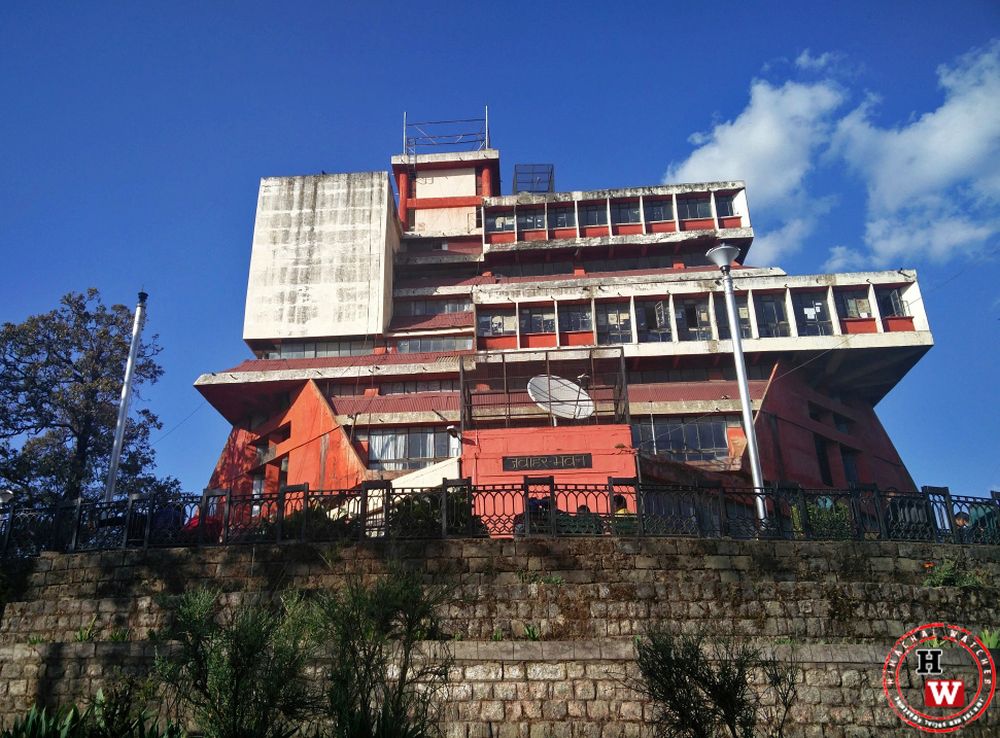
Shimla-Dates for admissions to undergraduate courses for the session 2021-22 in colleges affiliated to Himachal Pradesh University has been extended, which has come as a relief to not only those students who were seeking fresh enrollments in the first year but also to the students of the second and third year.
The varsity informed that the decision was taken after considering requests received from various students regarding the same.
Now, willing students can apply for enrollment in both government and private colleges till 5 PM, October 25, 2021.
This extension of date would benefit students who recently passed supplementary exams or those students of the second and third-year who had missed admission due to delay in declaration of their previous results.
Campus Watch
UHF Nauni Extends Admission Dates for UG, PG, PhD Till Oct 18
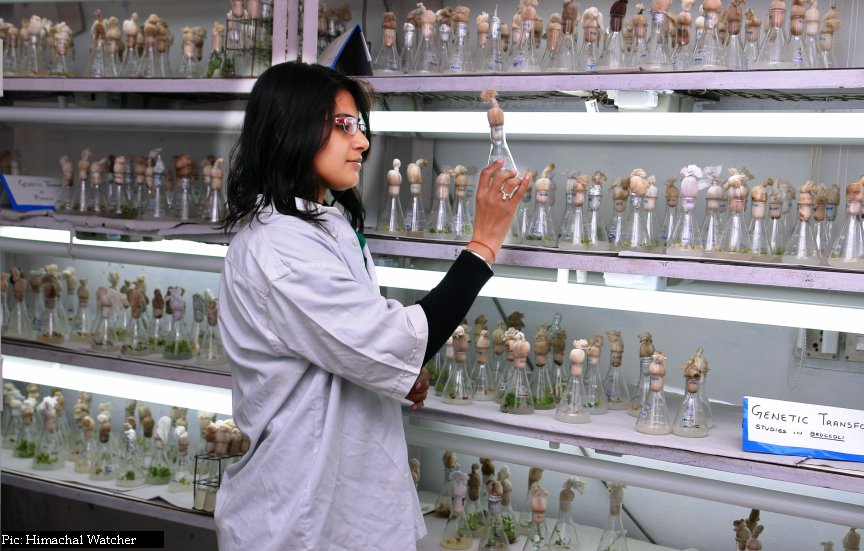
Solan– Dr. YS Parmar University of Horticulture and Forestry (UHF), Nauni, has extended the last date for applying to various Undergraduate, Postgraduate and Doctoral programmes in Horticulture, Forestry, Biotechnology, Agribusiness and Business Management. Applicants can submit their complete online application on the university’s admission portal till 18th October.
The normal seats of BSc (Hons) Horticulture, BSc (Hons) Forestry and B Tech Biotechnology will be filled on the basis of scorecard of ICAR-AIEEA (UG) 2021.
Admissions to MSc, MBA (Agribusiness) and PhD (for normal and self-financing seats) will also be conducted on the scorecard of ICAR AIEEA (PG) and AICE-JRF/SRF respectively. Students who have appeared in the ICAR-AIEEA 2021 for UG and PG, or AICE-JRF/SRF examination and are interested in seeking admission, such students must fill the university online application form before 18th October. Undergraduate aspirants who have not appeared in the ICAR test can however apply for the self-financing seats for B Sc and B Tech Biotechnology programmes run by the university by filling the online application on the university website.
The university has also advised the registered candidates to submit complete online application forms along with online payment acknowledgement slip before the due date. The schedule for online counselling will be announced by the University on the website after the declaration of the ICAR examination result. Application forms other than online mode will not be accepted.


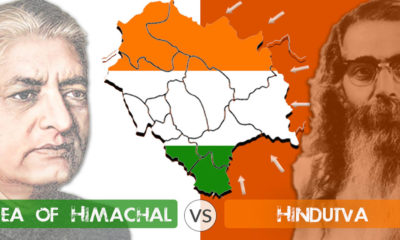











 Home Decor Ideas 2020
Home Decor Ideas 2020